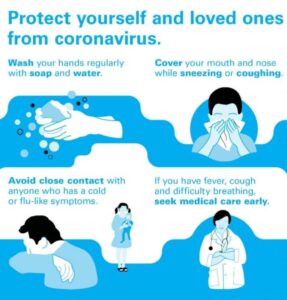
If you are caring for someone with COVID-19 at home or in a non-healthcare setting, follow this advice to protect yourself and others. Learn what to do when someone has symptoms of COVID-19. or when someone has been diagnosed with the virus. This information also should be followed when caring for people who have tested positive but are not showing symptoms.
*Note: Older adults and people of any age with serious underlying medical conditions are at higher risk for developing more severe illness from COVID-19. People at higher risk of severe illness should call their doctor as soon as symptoms start.prescription bottle alt light iconProvide support and help cover basic needs
- Help the person who is sick follow their doctor’s instructions for care and medicine.
- For most people, symptoms last a few days, and people usually feel better after a week.
- See if over-the-counter medicines for fever help the person feel better.
- Make sure the person who is sick drinks a lot of fluids and rests.
- Help them with grocery shopping, filling prescriptions, and getting other items they may need. Consider having the items delivered through a delivery service, if possible.
- Take care of their pet(s), and limit contact between the person who is sick and their pet(s) when possible.
comment alt medical light iconWatch for warning signs
- Have their doctor’s phone number on hand.
- Use CDC’s self-checker tool to help you make decisions about seeking appropriate medical care.
- Call their doctor if the person keeps getting sicker. For medical emergencies, call 104 and tell the dispatcher that the person has or might have COVID-19.
When to Seek Emergency Medical Attention
Look for emergency warning signs* for COVID-19. If someone is showing any of these signs, seek emergency medical care immediately
- Trouble breathing
- Persistent pain or pressure in the chest
- New confusion
- Inability to wake or stay awake
- Bluish lips or face
*This list is not all possible symptoms. Please call your medical provider for any other symptoms that are severe or concerning to you.
call ahead to your local emergency facility: Notify the operator that you are seeking care for someone who has or may have COVID-19.
- Limit contact
- Eat in separate rooms or areas
- Avoid sharing personal items
- When to wear a cloth face cover or gloves
- Clean your hands often

